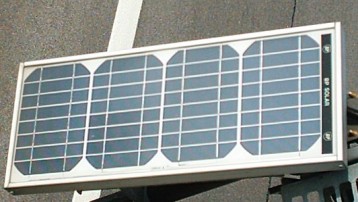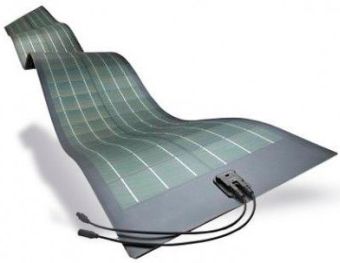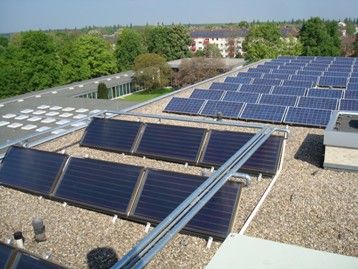PV modules are the basis of alternative power supply using solar energy
 The further development of renewable, alternative energy sources is a pillar for the development of modern human society, as these energy sources are practically inexhaustible and are not aggressive to the environment. There are many technologies and methods for obtaining energy from renewable sources, such as wind, sun, water, etc. the foundations of the foundations of all modern solar cells.
The further development of renewable, alternative energy sources is a pillar for the development of modern human society, as these energy sources are practically inexhaustible and are not aggressive to the environment. There are many technologies and methods for obtaining energy from renewable sources, such as wind, sun, water, etc. the foundations of the foundations of all modern solar cells.
What is a photovoltaic module?
A photovoltaic module, or otherwise called a photovoltaic module, aims to convert sunlight into electricity.
Converting solar energy into electricity here it happens by a chemical reaction occurring in the organosilicon structure of the photocell, where electricity is generated under the influence of sunlight.
This principle of electricity generation is applied in modern silicon solar cells, which are structurally connected in special "panels" called modules to get more power from electric batteries. These photo modules are the basis of modern solar cells.
The principle of operation of a photovoltaic panel and a power plant built on their basis.
A solar cell, or otherwise a photovoltaic panel, is a type of converter that converts electromagnetic solar radiation of a certain wavelength into electrical energy. The efficiency (efficiency) of solar cells today is in the range of 15-30%, and in some of the most advanced models, it can be even more.
The principle of operation of a modern electric generator based on the use of solar panels is quite simple. Photovoltaic cells integrated into the solar panels are controlled by a single power plant control unit. The photovoltaic modules of the battery, in the presence of sunlight, generate a direct electric current, which either passes through the inverter (converter) to the network served by the power plant to supply energy consumers, or goes to recharge the batteries and thus accumulate energy for "future" needs.
Depending on the structure of silicon compounds in photovoltaic modules, all modules are subdivided into:
• Solar monocrystalline modules.
• Polycrystalline modules.
• Solar modules are amorphous.
Organosilicon solar panels — are the main components of any power plant based on the use of solar energy.
Silicon PV solar cells, in combination with various additives, form the so-called «p-n» transition in the photocell, through which solar energy is converted into electricity.
The most common modern "solar" power plants are solar backup and autonomous power systems, which are mainly used by the population, as well as industrial solar power plants — generating electricity for the general power grid.
A mobile solar battery made of amorphous photovoltaic modules
The main advantages of solar panels based on photovoltaic modules.
The advantages of power plants based on the use of solar panels include:
• Long service life of the solar panels, which reaches even 25 years.
• Minimalism in the maintenance of solar modules, which consists only in preventive cleaning of the surface of the photocells from pollutants for better "acceptance" of solar energy from them.
• The production of electricity through the use of solar panels is not accompanied by any noise effects.
• Solar energy, with its conversion into electricity, is one of the most ecologically clean types of energy that does not harm the environment.
• Solar panel modules — applicable in the most inaccessible, remote areas where the supply of fixed power lines is not economically feasible.
Conclusion.
Summarizing our conversation, we can say that the use of photovoltaic modules in modern energy has taken a significant step towards the movement of humanity towards environmentally friendly and renewable energy sources, which it now needs.



